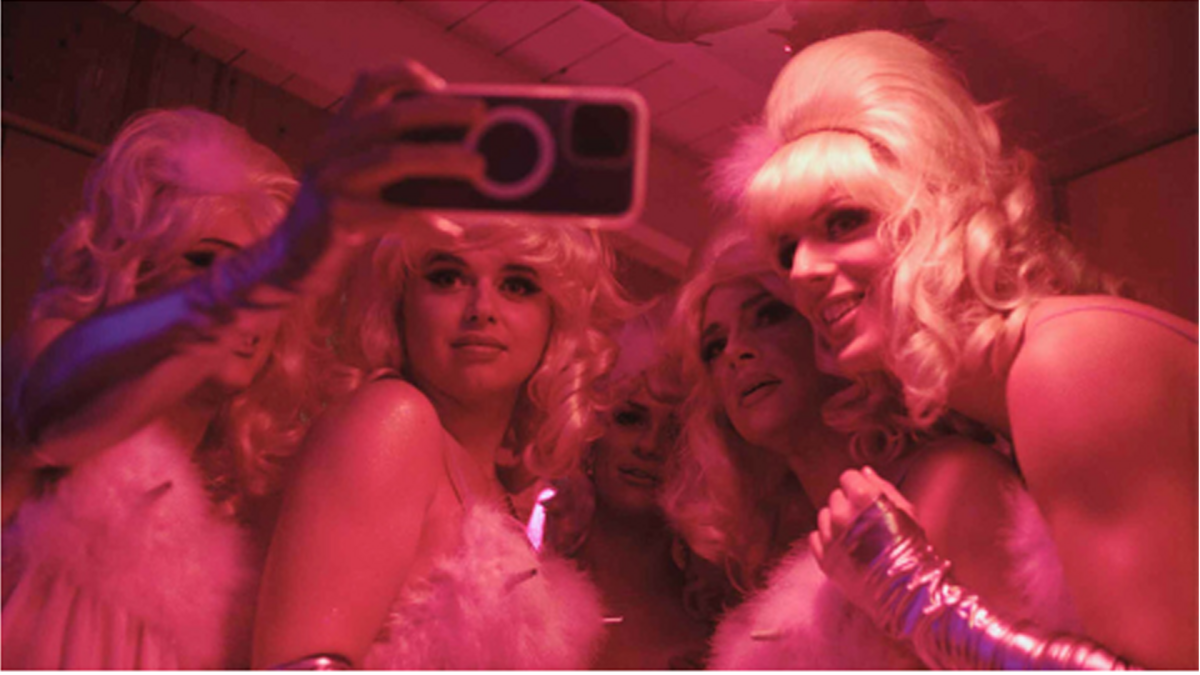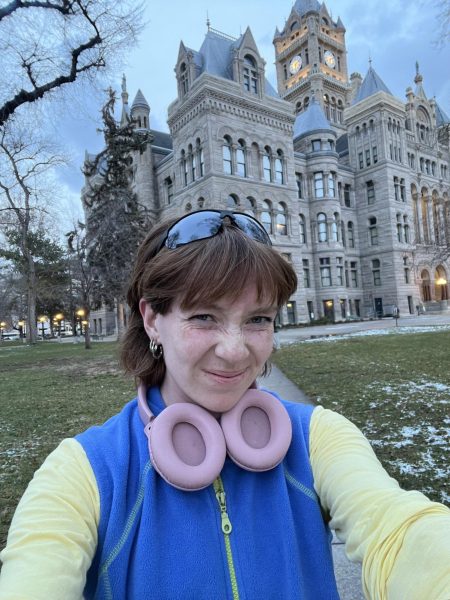Fifty miles from New York, there’s a place where the gays rule the world: Fire Island Pines.
“A House Is Not a Disco” was the opening night screening at the Utah Queer Film Festival (UQFF) on Friday, Oct. 25.
LGBTQA-WESOME
This 90-minute documentary is the directing debut of Brian J. Smith, which takes on Fire Island Pines and all who inhabit it. The story is riveting as there’s so much color, vibrancy and so many gays — emphasis on gays.
“A House Is Not a Disco” focuses on queer history and queer futures. In this documentary, audiences follow the lives of multiple generations as they look back and explain the importance of Fire Island Pines. They describe how the community there has grown to be more than a strip of sand against the waves. The vulnerability of perspectives gained from this is the most rewarding aspect of the film.
As we get to know the older generations, they tell stories from their past experiences. These accounts take on topics such as AIDS, the pre-legalization of LGBTQIA+ marriage, the Stonewall riots and many others. Each of these complications is what led them to Fire Island Pines. In several interviews, many explained the family, friends and significant others they’ve lost through these hardships. Fire Island continues to carry on memories and their spirits.
Drag, Flamingos and Friendly Neighbors
While there are serious topics like these, there is still lightheartedness as the focus gets put on drag artists living in the Pines, and everyone’s favorite neighbor: Skyler Hook. Hook is a longtime Pines citizen who creates pictures and staged productions using plastic flamingos. For the audience, this addition created a roar in the room as we viewed the genuine and campy artistry of this beloved neighbor. Implementing stories like this is an aspect that I applaud Smith for. This sentiment continued throughout the film.
In an interview with Pix11 News, Smith said, “It’s a place that is really special to me as a gay man. It’s really where I learned how to be gay, and I’ve heard a lot of people say that about that place.”
The Pines still invites a space for our generation to break away from the life they exist in reality.
Many involved in the film described Fire Island as a heaven. Watching the film gave me a sense of belonging that I don’t get living in the world now. It’s beautiful to see this community that has seen so much underrepresentation blown up on the big screen. Although, like in reality, Fire Island Pines has seen its flaws. I like that the film highlights that Fire Island needs to become more inclusive.
The film mostly introduces the lives of gay men and their experiences on the island. I would have liked to see a variety of LGBTQIA+ representation. At the time of filming, Fire Island Pines was experiencing a renaissance of inclusivity as a new park called “Trailblazers Park” was installed. This introduced audiences to Iman Le Caire, an activist for transgender asylum seekers. Caire started the conversation about creating a more inclusive space on Fire Island.
A House Is Not a Disco, but a Beach Is
Tying everything together, the film highlighted the annual beach party and the importance of keeping it alive. A celebration of the end of summer, the “Pines Party,” was started back in 1979, “Beach ‘79,” being a charity event for a new fire truck. It soon gained its popularity in becoming the inclusive queer party that it is today. As we watched the upbringing of this party, the theme being Greeks in Space, community members spoke about the effects of global warming on the island. This looked at a deep-rooted fear of what Fire Island will become, as the ocean continues to creep up on the beach.
“A House Is Not a Disco” was an eventful beginning to UQFF and became my favorite film from the weekend.
“I think this would be great on Netflix, Hulu or Amazon,” Smith said. “It’s uplifting, it’s fun, it has a great message from our community to the world about what an amazing, supportive community this is. I want the world to see it.”



